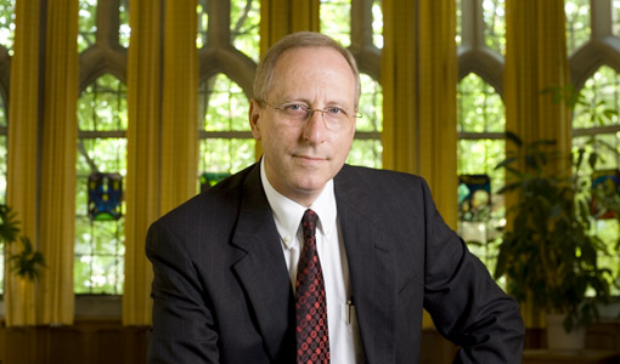As the earliest Christians reflected on the world in which they lived, a world they were called to evangelize, their thoughts turned quite naturally to what we today would call political and economic issues. The Catholic social tradition germinated in the fertile soil of these reflections. It took shape in a variety of pastoral contexts over two millennia, and it continues to develop. Like a sturdy tree, it grows and spreads its branches in newdirections while at the same time sending its roots more deeply into the soil from which it emerged.
One persistent element of this tradition, however, has been an ambivalent attitude toward wealth. On the one hand, early Christians, who had a heightened sense of thedignity of every person, were appalled by the widespread poverty in the ancient world. They hoped for a time in which the wealth of creation would be justly shared andeveryone could enjoy the prosperity that God intended for his people.
On the other hand, they had a static view of this wealth that caused them to frame the problem of poverty as one of distribution, not growth. In other words, they tendedto see wealth as fixed in quantity: only so much land to till, only so much ore to mine. Disparities in wealth were explained in terms of greed, which provoked the strong todominate the weak; furthermore, they were quite familiar with the danger of spiritual corruption that often accompanied the possession of wealth. As Jesus himself warned, the wealthy can too easily become obsessed with their money and distracted from their ultimate destiny.
For much of the history of Christianity these negative views of wealth prevailed. By an accident of birth or by the grace of God one might be wealthy (in which case the pursuitof holiness might require disposing of one’s wealth), but the deliberate accumulation of wealth was never thought to be an honorable goal. Disparities in wealth were often taken to be sure signs of injustice.
In the modern world, however, something new has happened. Over the last two centuries parts of the world have experienced an unprecedented growth in wealth andmaterial well-being. We have learned that wealth can be created where once we thought it could only be shared. Though the majority of the world’s population has not yet participated in the growth of wealth, the reality of abundance has posed new questions for the Catholic social tradition that go beyond former questions of the just distribution of resources.
Key Ideas From the Catholic Social Tradition
The Catholic social tradition has yet to take full account of the economic changes of the modern world, with its stunning capacity to create new wealth; nevertheless, thetradition contains some key ideas, or principles, that can shape a new approach to economic questions.
An understanding of what wealth really is
The distinction between wealth and income is elementary, but there is another distinction that is not so commonly recognized. This is the distinction between excess and abundance.
Wealth can be an elusive concept, but it certainly has something to do with an accumulation of material goods, which are the goods that sustain human life and contribute to its fulfillment. These things include not only basics such as food, clothing, and medicine but also art, music and books.
Most of human history has been the experience of scarcity, where the vast majority of people had far too little and a small minority had a great deal more than they needed.In such a case it is easy to associate wealth with excess but this need not be so. The Genesis story of Adam and Eve offers a different picture. Prior to their sin, they enjoyed an abundance of all of the good things that fulfill human beings: nourishment, health, beauty, friendship. God’s gift to them was not a wasteful excess but a garden in which everything they needed was plentiful.
This is the model for a Christian understanding of wealth. Wealth is distinct from both scarcity and excess. It is an abundance of all of the good things that contribute togenuine human fulfillment. For most of human history, scarcity has been the rule. While laziness, greed and abuse of power will never disappear, and poverty will always bewith us, the new challenge for Christians may be to learn how to manage abundance well.
Gifts from the Creator
One of the fundamental convictions of the Catholic social tradition is that everything we possess, from our very lives to our abilities to our possessions, is a gift from God.We own nothing unconditionally but have to give an accounting, so to speak, of our use of all of these gifts. God intends each person to flourish and be happy, to have ashare in his life. The gifts he gives to each person are intended to serve that purpose but to do something more as well.
That something more has to do with the well-being of others. The gifts we have can serve our own purposes, but on the Catholic account they must also be used for God’spurposes. A person with a talent for business, for example, can certainly use that talent to pursue personal wealth, but that is not enough. He or she must also be open to usingthis talent to serve others by creating employment opportunities or products that satisfy real human needs or by creating wealth for investors.
Serving the needs of all humanity
Early Christians were convinced that all people were images of God and so shared a fundamental dignity, or value. As a result, they believed that the goods and resources of creation were intended by God to serve the needs of all humanity without exception. No one, in other words, simply in virtue of his or her humanity, has a greater claim than anyone else on the resources of the created world. The modern way of expressing this is to say that the goods of the earth have a “universal destination.”
Of course, these resources are unevenly distributed. Some people by the accidents of history have substantially more than others. In consequence, they have a solemn obligation not to hoard their surplus resources but to make them available, by trade or donation, to others who need them.
At the same time, as St. Paul reminds us, the right to a share in these resources is actualized by our work. Those who will not work (when they are able to do so), he tells the Thessalonians, should not eat. And by implication, those who work more may have a greater claim on the surplus resources.
Underlying all of this is a vision of humanity as a community of social beings, bound together by their dependence on the Creator. The conditions that make it possiblefor this community to function, and for its members to flourish, constitute the common good of the community. Everyone has a duty to help sustain this common good, which means that everyone must not only seek justice but also be ready to help those in need.
Confidence in God’s providence
The suspicion of wealth that has marked the Christian tradition was rooted partly in a rejection of the indifference of the wealthy in the face of dire poverty and great humansuffering. It also was rooted in the conviction that the wealthy often abused the power that accompanied their wealth, a conviction well-grounded in experience. But therealso was something more at work here.
Christians have long been concerned that even in the hands of the just, wealth can be dangerous.Wealth is a tool; it is not the goal of our lives. Our experience, though, isthat too often the tool can become the master and distract us from the goals and values that really ought to shape our lives.
Even more fundamentally, Christians have long seen a conflict between the desire for wealth and a willingness to trust God’s providence. As Jesus warned us, wealth cannotprotect us from the dangers we ought to fear, from the things that separate us from God and deny us a share in his life. Those who devote their lives to accumulating wealth as a shield against misfortune do so at the peril of losing their real happiness.
Wealth and Business
What does all this imply for businesspeople who take their faith seriously? Or for that matter, what does it imply for a school of business in a Catholic university? While theCatholic social tradition needs to develop its thinking about wealth further, in light of modern conditions, we might still keep several things in mind.
First, wealth is a very good thing indeed. It is an abundance of the material things that sustain human wellbeing. It is a fine goal for any community to seek to move all of its members from poverty to prosperity.
Second, we now know that wealth can be created. While problems of just distribution will continue to exist, the challenge for the future may well be to teach communitieshow to create wealth and to help them establish the conditions that make this possible. The challenge for Catholic social thinking is to move out of the distributiononly box and to examine the values, techniques and virtues necessary for creating wealth. Among other things, this has broad implications for the way in which nations relate to one another.
Third, greater recognition needs to be given to the role that business plays in enhancing the prosperity of a community. In the first place, businesspeople are the principalagents of wealth creation and in managing successful businesses they make a huge contribution to the common good. If physicians serve the health of the community, and attorneys serve justice, business professionals serve prosperity. To be sure, unethical business practices can cause great harm, but businesspeople may be less indifferent to such harms if they take more seriously their role in creating prosperity.
The community in general, and Catholic thinkers in particular, need to respect the genuine and irreplaceable good that business does, acknowledge that good, and encourage it whenever possible. Business schools can do their part by emphasizing this good in their curriculum. The Catholic social tradition is deeply rooted in the teachings of Jesus, in Scripture more generally, and in nearly two millennia of lived experience. It recognizes the importance of real wealth (not just hoarded excess) to human well-being, and it is beginning to acknowledge the contribution of business professionals to the creation and distribution of wealth.





